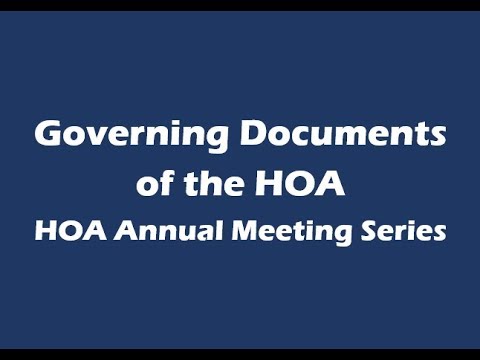Introduction: Regulations for HOA Boards in Rhode Island
Homeowners’ Association (HOA) boards play a crucial role in managing the affairs of residential communities in Rhode Island. These boards are responsible for making decisions that impact residents’ daily lives, including property maintenance, budgeting, and rule enforcement. However, with such influential power comes the need for regulations to ensure fair and transparent governance. In this article, we will delve into the various regulations governing HOA boards in Rhode Island, providing homeowners and board members with a comprehensive understanding of their rights and responsibilities.
Understanding the Role of HOA Boards in Rhode Island
HOA boards in Rhode Island serve as a governing body for residential communities, comprising elected or appointed members who represent the interests of homeowners. The primary objective of these boards is to maintain and enhance property values, ensuring the overall well-being of the community. They accomplish this by enforcing rules and regulations, managing finances, and organizing community activities.
The Rhode Island Condominium Act and HOA Boards
The Rhode Island Condominium Act, enacted in 1982, serves as the primary legislative framework governing HOA boards in the state. This act sets out the legal requirements for the establishment, operation, and governance of condominium associations, which are a common form of HOA in Rhode Island. It outlines the powers, duties, and limitations of these boards, as well as the rights and responsibilities of homeowners.
Powers and Responsibilities of HOA Boards in Rhode Island
HOA boards in Rhode Island possess certain powers and responsibilities, as defined by the Rhode Island Condominium Act and individual association bylaws. These include maintaining common areas, enforcing rules and regulations, collecting fees and assessments, approving budgets, and hiring and overseeing property management companies. Additionally, boards may establish architectural review committees, handle insurance matters, and address resident complaints.
Regulations on Board Composition and Elections in Rhode Island
Rhode Island has specific regulations regarding the composition and election of HOA boards. The Rhode Island Condominium Act requires that the board be composed of at least three members, who must be homeowners or their designated representatives. Moreover, the act mandates annual elections, ensuring democratic representation of homeowners on the board. These regulations aim to prevent concentration of power and promote accountability within the community.
Financial Regulations for HOA Boards in Rhode Island
Financial management is a critical aspect of HOA board governance in Rhode Island. The Rhode Island Condominium Act mandates that HOA boards maintain separate reserve accounts for major repairs and replacements. Additionally, it requires boards to provide homeowners with annual financial statements and budgets, promoting transparency and accountability. Proper financial management helps ensure the long-term stability and solvency of the association.
Rhode Island Laws on Board Meetings and Decision-Making
Rhode Island has regulations governing the conduct of HOA board meetings and decision-making processes. The Rhode Island Condominium Act stipulates that boards must hold regular meetings and provide homeowners with advance notice. It also requires board decisions to be made in open meetings, allowing homeowners to participate and voice their concerns. These regulations safeguard homeowners’ right to be informed and involved in the decision-making process.
Dispute Resolution and Mediation for HOA Boards in Rhode Island
Disputes between homeowners and HOA boards can arise, and Rhode Island has provisions to address these conflicts. The Rhode Island Condominium Act encourages dispute resolution through mediation or arbitration, providing an alternative to costly and time-consuming litigation. Mediation allows parties to discuss and negotiate their differences with the help of a neutral third party, promoting amicable resolutions and preserving community harmony.
Regulations on HOA Fees and Assessments in Rhode Island
HOA fees and assessments are vital to the financial health of HOA boards in Rhode Island. The Rhode Island Condominium Act regulates the collection of fees and assessments, outlining the procedures and requirements for their imposition and enforcement. Boards must ensure that fees and assessments are reasonable and necessary, and that proper notice is provided to homeowners. These regulations protect homeowners from excessive financial burdens and ensure equitable distribution of expenses.
Rhode Island Laws on Board Member Conduct and Ethics
Board members are expected to adhere to high standards of conduct and ethics when serving on HOA boards in Rhode Island. They have a fiduciary duty to act in the best interests of the community and its homeowners. Rhode Island laws require board members to avoid conflicts of interest, maintain confidentiality, and exercise due diligence in their decision-making. These regulations promote integrity and accountability within the board.
Enforcement of Regulations for HOA Boards in Rhode Island
To ensure compliance with regulations, Rhode Island provides mechanisms for enforcing HOA board regulations. Homeowners have the right to file complaints with the Rhode Island Attorney General’s Consumer Protection Unit if they believe their rights have been violated. The Attorney General can investigate and take legal action against non-compliant boards. Additionally, homeowners have the option to pursue legal remedies through civil litigation if necessary.
Resources for Rhode Island HOA Board Members and Residents
Rhode Island offers various resources to assist HOA board members and residents in understanding and navigating the regulations governing HOA boards. The Rhode Island Department of Business Regulation provides information on the Rhode Island Condominium Act, including FAQs, guides, and forms. Additionally, homeowners can seek guidance from legal professionals specializing in HOA law to ensure compliance and protect their rights. These resources empower homeowners and board members to actively participate in the governance of their communities.





